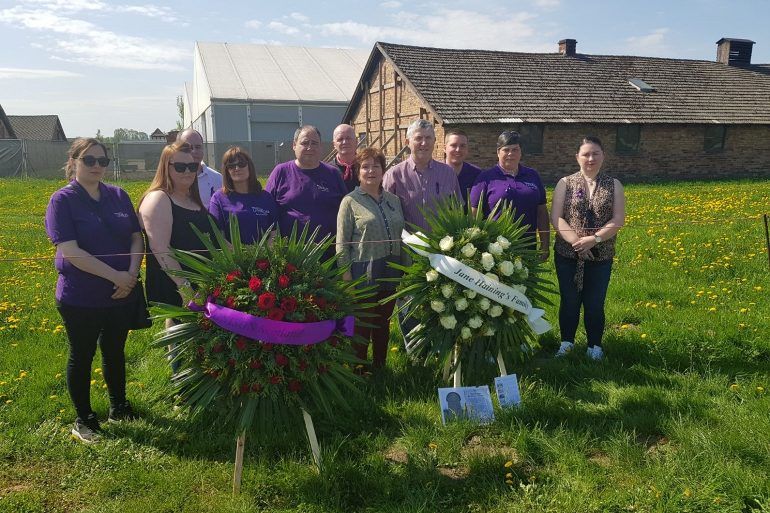Unison Renfrewshire share a special podcast discussing the life of Jane Haining – the Scot recognised as ‘Righteous Among the Nations’ after the tragic events of the Holocaust.
Jane’s niece Deirdre McDowell, Pam Mitchell from Dunscore Heritage Centre and Mary Miller (author of a book about Jane’s life) speak about Jane’s remarkable sacrifice and her legacy.
You can listen to the podcast on Soundcloud
The following text kindly supplied by Unison Renfrewshire.
Jane Haining
Jane Mathison Haining was born on 6 June 1897 in Lochenhead Farm, Dunscore.
From a young age she displayed a caring attitude for others and, whilst at Dumfries Academy, she won many awards, excelling in languages and becoming Dux of the school in her last year.
Jane moved to Glasgow where she completed a business course and was then appointed as a clerical member of staff in the company of J&P Coats Ltd in Paisley, working there for the next 10 years.
She later took a college diploma, worked in Glasgow and then in Manchester where, in January 1932, she responded to an advert in the Church of Scotland magazine for the position of matron at the Girls’ Home at the Scottish Mission to the Jews in Budapest.
Jane wrote home about her work telling that there were about 400 pupils at the school from six to sixteen years of age and of these about 35 lived in the institute for which she was responsible. Many summer holidays were spent by Lake Balaton looking after any pupils who did not return home for July and August. They were happy times.
Jane left Budapest in the summer of 1935, returning to Scotland for two months’ leave and visited her family and friends in Dunscore and Glasgow. Germany annexed Austria in 1937 and more refugee Jewish children were accommodated in the Mission in Budapest.
Jane visited Scotland in 1939 shortly before Germany invaded Poland resulting in the start of the Second World War. Despite warnings from the Church of Scotland to foreign missionaries to return home, Jane returned to Budapest.
The situation deteriorated over the next few years but Jane ensured that life in the Mission remained as normal as possible.
Germany took possession of Hungary in 1944 and the Nazis controlled Budapest. Life became immensely difficult and many Jews were immediately transported to forced labour camps or to their deaths. In April 1944 the Gestapo arrived at the Mission. Jane was charged with eight offences and taken away. Sadly this was the last her pupils ever saw of her.
After a short time being held in a prison in Budapest, Jane was transported to Auschwitz and died shortly thereafter.
In her last letter, she wrote: “Even here on the way to Heaven are mountains but further away than ours.”
